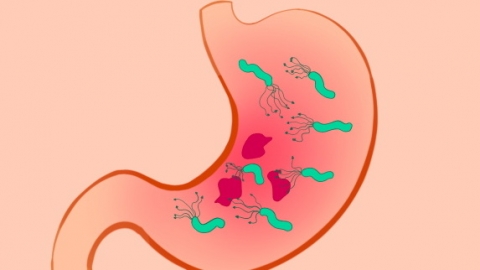What is Helicobacter pylori?
Under normal circumstances, Helicobacter pylori (H. pylori) is a common gastric parasitic bacterium mainly colonizing the surface of the gastric mucosa, potentially causing gastric inflammation or related diseases. It is one of the important factors leading to chronic gastritis, peptic ulcer disease, and similar conditions. A detailed analysis is as follows:

H. pylori has a spiral shape and possesses a unique structure that enables it to resist the acidic gastric environment. It can colonize and reproduce on the surface of the gastric mucosa for extended periods, possibly damaging the protective barrier of the gastric mucosa and triggering inflammatory responses. Most individuals in the early stages of infection may not experience significant discomfort. However, as the bacterial activity persists, some individuals may develop symptoms such as upper abdominal pain, acid reflux, bloating, and reduced appetite. Long-term infection may also increase the risk of gastric mucosa-associated lymphoid tissue (MALT) lymphoma and gastric cancer. H. pylori primarily spreads through oral-oral and fecal-oral routes, and the risk of transmission is higher in environments with poor sanitary conditions.
In daily life, preventing H. pylori infection requires attention to food hygiene, avoiding consumption of raw water and undercooked food. Regular disinfection of tableware and avoiding sharing eating utensils, toothbrushes, and other personal items with others can effectively reduce the risk of infection and help maintain gastrointestinal health.






